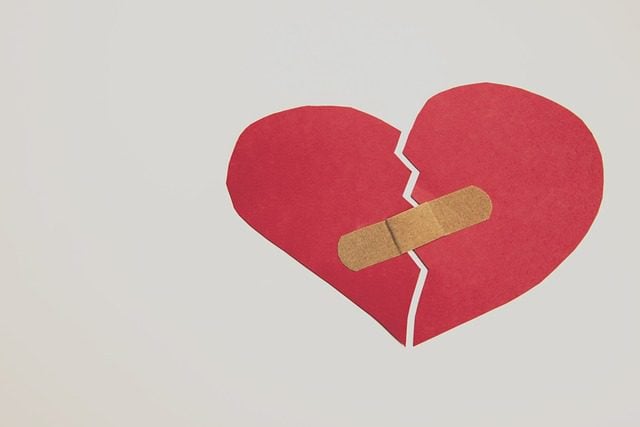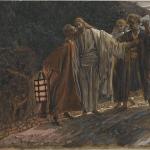
I want to open by mentioning that I asked one of my friends who was raped by a priest if she wanted to write this article for me as a guest post, and she asked me to write it instead. That’s why I’m presuming to talk about it. I’ve taken my own medicine.
I’ve just been shown a sample chapter from a book called “Healing Our Church.” The author of this book doesn’t seem to be listed in the sample or the website, but it comes from the “Renew International” organization, with which I’m not familiar. This book is really a set of readings and instructions for the “Healing our Church” program, which is apparently a series of seminars being practiced in some parishes across the country and marketed to many more. The seminars are meant to “minister to hurting parishioners,” so that they might “start on the path to healing and renewed discipleship.”
The sample session provided is Chapter Three, “Rebuilding Our Church.” And if it’s an indicator of the thinking behind the whole of the book and the whole of the program, then I can safely say that both are worse than useless.
Let me walk you through the session as it’s written in the sample chapter. I’ll point out my objections as I go along.
It starts out with a hymn that sounds unbelievably sketchy in context. “O Jesus Healer of Wounded Souls” contains a line asking Jesus to “touch us” which I would leave out of any discussion of sexual abuse at all costs. There are better, non-triggering ways to say the same thing.
Then there’s a prayer, the Prayer of Saint Francis, which includes the line “O Divine Master, grant that I may never seek to be consoled as to console, to be understood as to understand, to be loved as to love.” This is an excellent prayer for many occasions. I like to pray it myself. But as far as a meeting addressing sexual abuse, it’s toxic. Abuse survivors very often find themselves in an agonizing vortex of self-blame. What they need is consolation, love and understanding, but they have been denied it and told that they don’t need it– indeed, oftentimes they’re told by their abusers that their natural longing for understanding is the victim being selfish. I have known emotionally abusive priests to quote prayers by Saint Francis in order to paint victims demanding redress as self-centered, in fact, and I don’t think I’m the only one. This particular prayer is a shockingly imprudent choice in any context to do with abuse.
And then we get to the real problem. The next section of the book and seminar is billed as a “survivor story,” but it’s not at all. It’s not the story of an abuse survivor. It’s the story of someone whose son was abused, and how she found the grace to stay Catholic. Mrs. Donna Harper coped with the knowledge that her son had been abused by a priest by staying in the Church and volunteering for a diocesan review board, where she “served more than 15 years” at the bishop’s request. Good for her and all. But why wasn’t this “survivor story” about a survivor? I’m the last person to say that parents of abused children don’t suffer, but why didn’t they write a story about Donna’s son? Why is Donna the one being billed as a survivor? Her son is treated as beside the point. They gloss over his trauma and his mother’s anguish except to say that she was “angry,” and then describe how she fell into line. She is portrayed as the good little victim who obeyed the bishop that betrayed her and went on to serve him so that he didn’t make the same mistake with someone else.
The next part of the session is something I don’t object to at all: a digest of facts garnered by the John Jay report, and they’re all true as far as they go. There’s no scaremongering or mention of a so-called Lavender Mafia, or anything of that sort, just statistics.
Then, there’s a Bible reading and a meditation on how the people at the session can be “ligaments in the Body of Christ.” It directs them to take the “protecting God’s children” class and get involved in the parish. It’s all directed at parishioners who weren’t themselves abuse survivors, addressing their shock and horror and exhorting them to be helpers instead of walking away. It doesn’t address survivors and it doesn’t address perpetrators at all.













